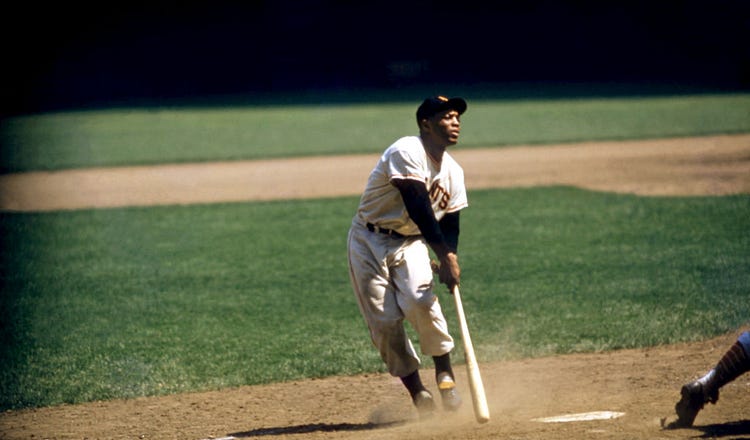Willie Mays Defined Baseball’s Golden Era

Willie Mays in New York, in 1955. (Photo by Hy Peskin/Getty Images)
Having grown up in Jim Crow Alabama, he never thought he’d play in a major league—let alone become America’s most exciting player.
11
This piece was first published in our news digest, The Front Page. To get our latest scoops, investigations, and columns in your inbox every morning, Monday through Thursday, become a Free Press subscriber today:
From the late 1940s to the early 1960s, baseball’s greatest era, Willie Mays was baseball’s greatest player. That was before football and baske…
Continue Reading The Free Press
To support our journalism, and unlock all of our investigative stories and provocative commentary about the world as it actually is, subscribe below.
$8.33/month
Billed as $100 yearly
$10/month
Billed as $10 monthly
Already have an account?
Sign In


